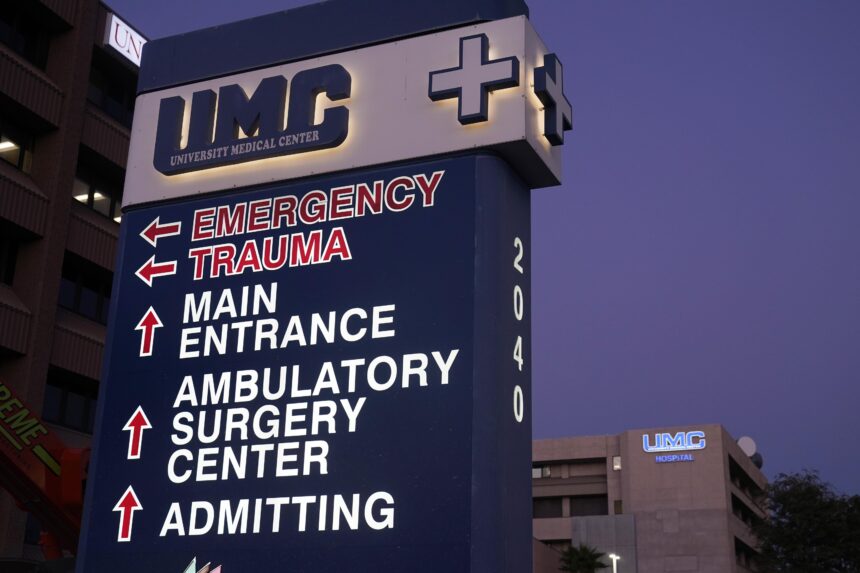Addressing the Growing Need for Forensic Nurses Amid Rising Unexplained Deaths in Las Vegas
Las Vegas is currently facing a troubling increase in unexplained fatalities, highlighting a critical shortage of forensic nursing professionals within the city’s healthcare and criminal justice frameworks. As coroners and medical examiners encounter heavier workloads, the demand for skilled forensic nurses—who serve as vital links between medical evaluation and legal investigation—has never been more urgent. This article delves into the obstacles confronting forensic nursing teams in Las Vegas and outlines the pressing necessity to expand this specialized workforce to enhance death investigations, support victims’ families, and bolster law enforcement efforts.
Escalating Fatalities Illuminate Forensic Nursing Shortfalls in Las Vegas
The recent spike in unexplained deaths has exposed notable deficiencies in the forensic nursing sector of Las Vegas. Community advocates and healthcare leaders are urging immediate action to increase staffing levels, as current shortages have led to delays in critical investigations and compromised victim care. Families frequently enough face prolonged uncertainty due to these bottlenecks, underscoring the indispensable role forensic nurses play—not only in meticulous evidence collection but also in offering empathetic support throughout the judicial process.
Priority actions recommended to address these gaps include:
- Boosting financial support for forensic nursing education and certification pathways
- Implementing targeted recruitment strategies emphasizing diversity and trauma-informed care expertise
- Strengthening collaboration between hospitals, law enforcement agencies, and victim advocacy organizations
- Expanding rapid response teams to provide immediate assistance during crisis events
| Current Workforce | Recommended Workforce | Average Monthly Caseload |
|---|---|---|
| 15 Forensic Nurses | 30 Forensic Nurses | 25 cases |
| 2 Rapid Response Teams | 5 Rapid Response Teams | 8 deployments |
Overburdened Forensic Nurses: Navigating Complex Cases and Emotional Strain
With the surge in forensic cases, nurses specializing in this field are increasingly stretched thin, managing a diverse array of responsibilities that demand both clinical expertise and legal knowledge. The high volume of cases often forces forensic nurses to multitask across medical assessments, evidence gathering, and courtroom testimony, all while coping with the psychological impact of frequent exposure to trauma and death. This intense workload contributes to elevated stress levels and risks of professional burnout.
Major challenges confronting forensic nurses include:
- Balancing multifaceted roles that combine healthcare delivery, law enforcement collaboration, and victim counseling
- Limited access to specialized training and ongoing education tailored to forensic nursing
- Insufficient mental health resources to address occupational trauma
- Time-consuming documentation requirements essential for legal accuracy
| Challenge | Consequences | Proposed Solutions |
|---|---|---|
| Excessive caseloads | Increased errors, delayed investigations | Expand recruitment and retention efforts |
| Emotional and psychological stress | Burnout, reduced job satisfaction | Introduce complete counseling and support programs |
| Demanding documentation | Less time for patient care and evidence handling | Adopt streamlined digital reporting tools |
Bridging the Training and Resource Divide in Forensic Nursing
Despite their pivotal role, forensic nurses in Las Vegas frequently enough face significant obstacles due to inconsistent training programs and limited access to modern forensic tools. Many report that existing curricula do not adequately cover the latest forensic technologies or advanced trauma assessment methods, leaving them underprepared for the complexities of current cases. Furthermore, the lack of institutional protocols and standardized documentation practices hampers efficient case management and interagency cooperation.
Critical areas requiring advancement include:
- Forensic imaging and evidence preservation: Many nurses lack formal instruction on optimal techniques for photographing injuries and securing physical evidence,which can jeopardize legal proceedings.
- Interdisciplinary communication: Fragmented coordination between healthcare providers, law enforcement, and legal professionals undermines case continuity.
- Mental health resources: Both patients and forensic nurses need better access to psychological support to mitigate the effects of trauma exposure.
| Training Component | Current Status | Recommended Improvements |
|---|---|---|
| Evidence Handling | Limited workshops | Practical certification programs |
| Trauma Evaluation | Basic training only | Advanced forensic trauma courses |
| Cross-Agency Communication | Informal meetings | Standardized communication protocols |
Strategic Initiatives to Enhance Forensic Nursing Capacity and Support
To elevate the effectiveness of forensic nursing in Las Vegas, significant investment in specialized education and infrastructure is essential. Collaborations with academic institutions and healthcare providers can facilitate immersive training programs featuring realistic case simulations, equipping nurses with the skills needed to navigate complex forensic scenarios confidently. Continuous professional development, including certifications in trauma-informed care and legal procedures, will further empower these professionals within the justice system.
Key strategies to fortify forensic nursing services include:
- Establishing dedicated forensic nursing units within major hospitals to centralize and optimize patient care and evidence processing
- Forming 24/7 multidisciplinary rapid response teams that integrate social workers, legal advisors, and forensic nurses for comprehensive crisis management
- Deploying advanced digital documentation systems to enhance the security and efficiency of forensic data handling
- Securing increased funding and grants aimed at forensic nursing research, training, and infrastructure development
| Initiative | Anticipated Benefit | Implementation Timeline |
|---|---|---|
| Specialized Training Programs | Improved forensic assessment skills | 6 to 12 months |
| Forensic Nursing Units | Streamlined patient and evidence management | 12 to 18 months |
| 24/7 Multidisciplinary Teams | Enhanced coordinated crisis response | 6 months |
| Advanced Documentation Technology | Secure and efficient forensic data management | 3 to 6 months |
Conclusion: Strengthening Forensic Nursing to Safeguard Justice and Community Well-being
As Las Vegas confronts an upward trend in deaths requiring thorough forensic examination, the imperative to expand and empower the forensic nursing workforce becomes increasingly evident. These specialized nurses are crucial in linking medical expertise with legal processes, ensuring that investigations are thorough and victims receive compassionate care. Addressing current shortages and resource limitations is vital not only for enhancing public safety but also for preserving the integrity of forensic investigations citywide. Without swift and strategic action, the mounting pressure on existing personnel and systems risks undermining justice and prolonging the suffering of affected families.Investing in forensic nursing is, ultimately, an investment in the health and security of the entire Las Vegas community.










